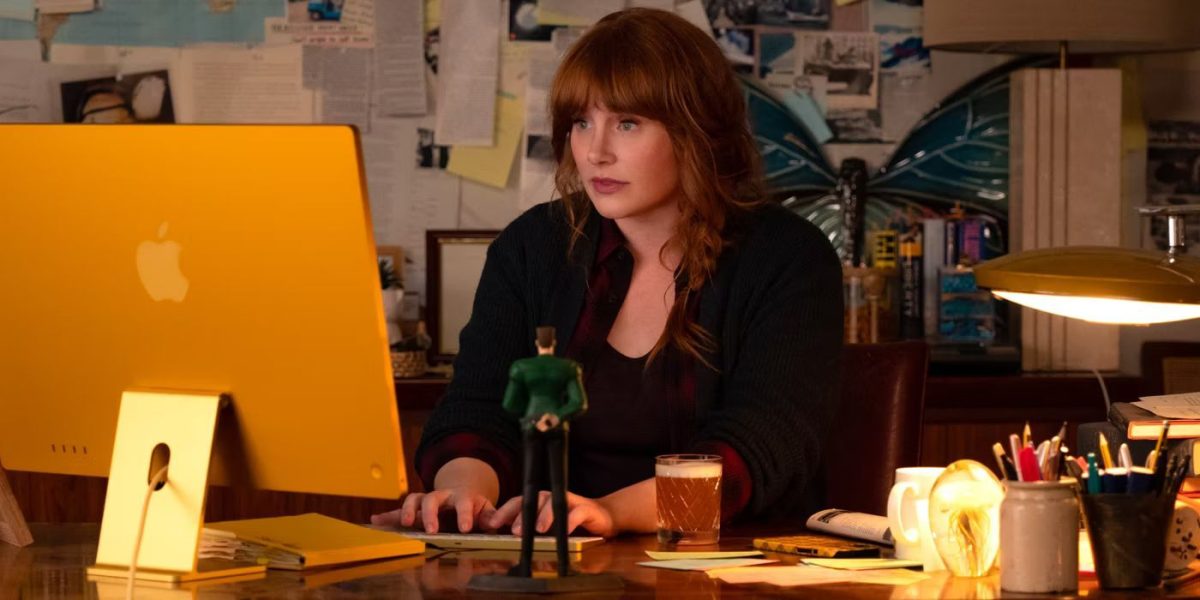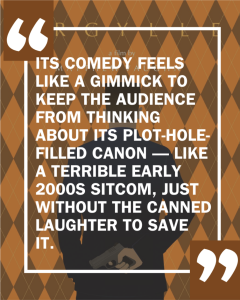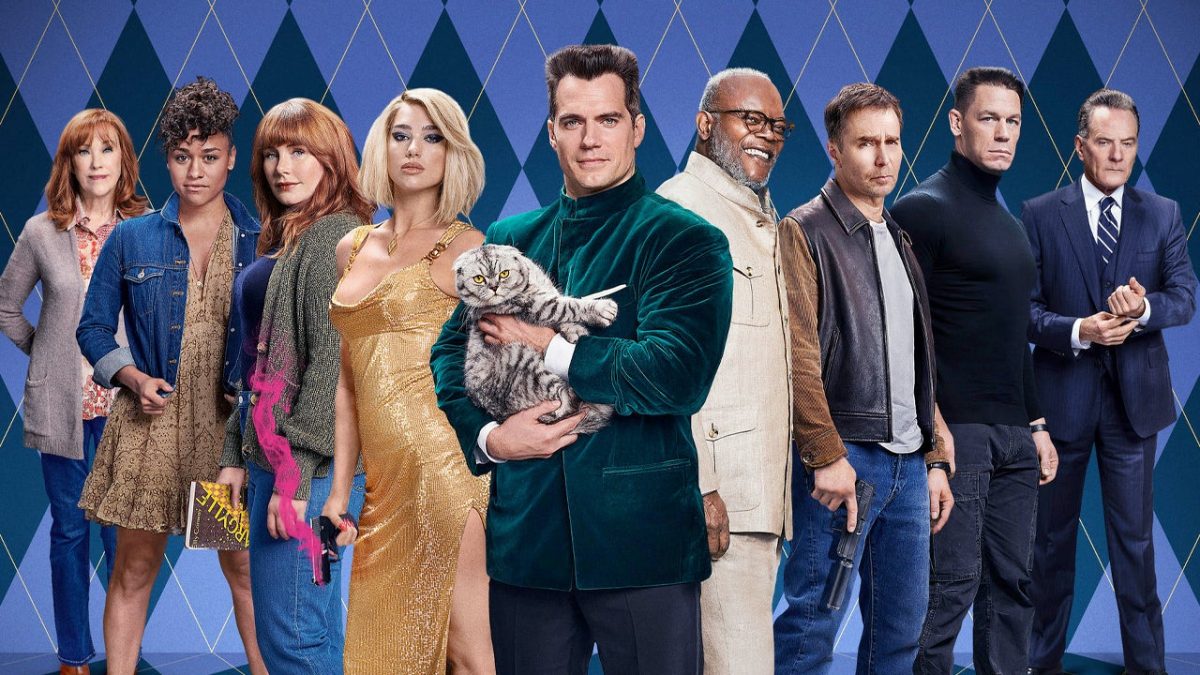Spoilers for “Argylle” ahead
Headlined by a star-studded ensemble of names like Dua Lipa, John Cena and Samuel L. Jackson, Matthew Vaughn’s comedy action film “Argylle” promised to be a “razor-witted, reality-bending, globe-encircling spy thriller.” Released in theaters on Friday, Feb. 2, the film was undoubtedly “razor” witted. “Argylle” ended up flopping with $18 million on the opening night at the box office, bleeding Apple’s hefty $200 million investment and leaving viewers wondering if Vaughn’s creative mind was too sharp for its own good.
Contrary to the trailer, the movie’s real focus isn’t superstar musician Dua Lipa but instead its main character Elly Conway, an anxiety-ridden writer who is the mastermind behind the in-universe “Argylle” books. Mysteriously, the book series seems capable of predicting real-world events involving a shady organization called “the Division.” And while the Division is dead-set on hunting Elly down, so is someone else — Aidan, a spy seeking to take down the Division and its lies.
But it turns out that Elly isn’t Elly; she’s former superspy Rachel Kylle, recovering from amnesia, and her books are the manifestations of her buried memories. Even more conveniently, she was also romantically involved with Aidan, which results in several poorly integrated scenes where he tries to kiss her.
The movie’s handling of Elly/Rachel, played by Bryce Dallas Howard, is emblematic of a larger problem in media: female characters can only have one of two personalities. Either they’re a quirky dork, or they’re an indestructible woman of steel. With Elly/Rachel, “Argylle” attempts both and achieves neither.
Before learning the truth about her identity, Elly’s main trait is her neuroticism, with nearly every scene punctuated by her freaking out and squealing some version of “I can’t do this! I’m just a writer!” Essentially, she’s panicking while Aidan does all the work. It is rare to see an action movie where the main character is the key item being carted from location to location, and it isn’t particularly enjoyable.

She’s not much better in the second half, either. In the middle of her first mission as Rachel, she suddenly flips a switch, losing all of her awkwardness and instantly becoming forceful and confident instead. There is a very brief conflict between her two identities, but it’s so shallow and mixed in with the rest of the plot twists that it never lands.
Between this, her millennial-cringe witticisms, and the fact that she generally does nothing except love, kill and freak out, it’s genuinely difficult to distinguish her from the average flat protagonist.
Just like how the movie falls into copying popular character archetypes, “Argylle” tries way too hard to imitate previous cinematic successes. In recent years, wacky and humorous interpretations of traditionally serious genres have exploded onto the scene, exemplified by box office successes such as “Knives Out” in 2019.
However, “Argylle” misses the mark on almost every single element that makes its predecessors so great. The best comedic moments from “Argylle” don’t come from its forced lines but rather from how awkward the movie becomes when those lines are delivered. The jokes are so emphatically flung out and unnatural that they disconnect the entire audience from the fundamental point of the movie as a thriller spy action film. As a result, its comedy feels like a gimmick to keep the audience from thinking about its plot-hole-filled canon — like a terrible early 2000s sitcom, just without the canned laughter to save it.

But “Argylle’s” humor easily outshines the rest of its messy chaos. In a culmination of colorful, comic-book-like fight scenes, unbelievable absurdist comedy, ironically hilarious one-liners and epic music choices, “Argylle” strangely manages to keep itself afloat despite every other characteristic of the movie sinking. Whether or not that’s done on purpose is a whole other matter, but one thing is for certain: “Argylle” will keep viewers entertained.
Nevertheless, the movie is incapable of committing to either silliness or seriousness, and the result suffers from a lack of both. It’s not serious enough with its setup for any of the constant plot twists to land, and stakes are never concretely established. The Division is as cookie-cutter as villains get, making it all the less convincing that the main characters are in any sort of danger. Worse yet, the movie’s insistence on stuffing itself full of plot-based scenes that the audience has no reason to care about takes away from the comedy.
It’s clear that the writers are capable of taking themselves less seriously when they mean to, but that only furthers the movie’s identity crisis. It often feels like it is trying to be smart by being stupid. This philosophy culminates in the movie’s obsession with misdirection, which is no surprise, given that its tagline is “The greater the spy, the greater the lie.” But the nonsensical plot, flat characters and baffling tone are enough to make one wonder if the greatest misdirection was being convinced to watch the movie in the first place.
Rating: 1.5/5













